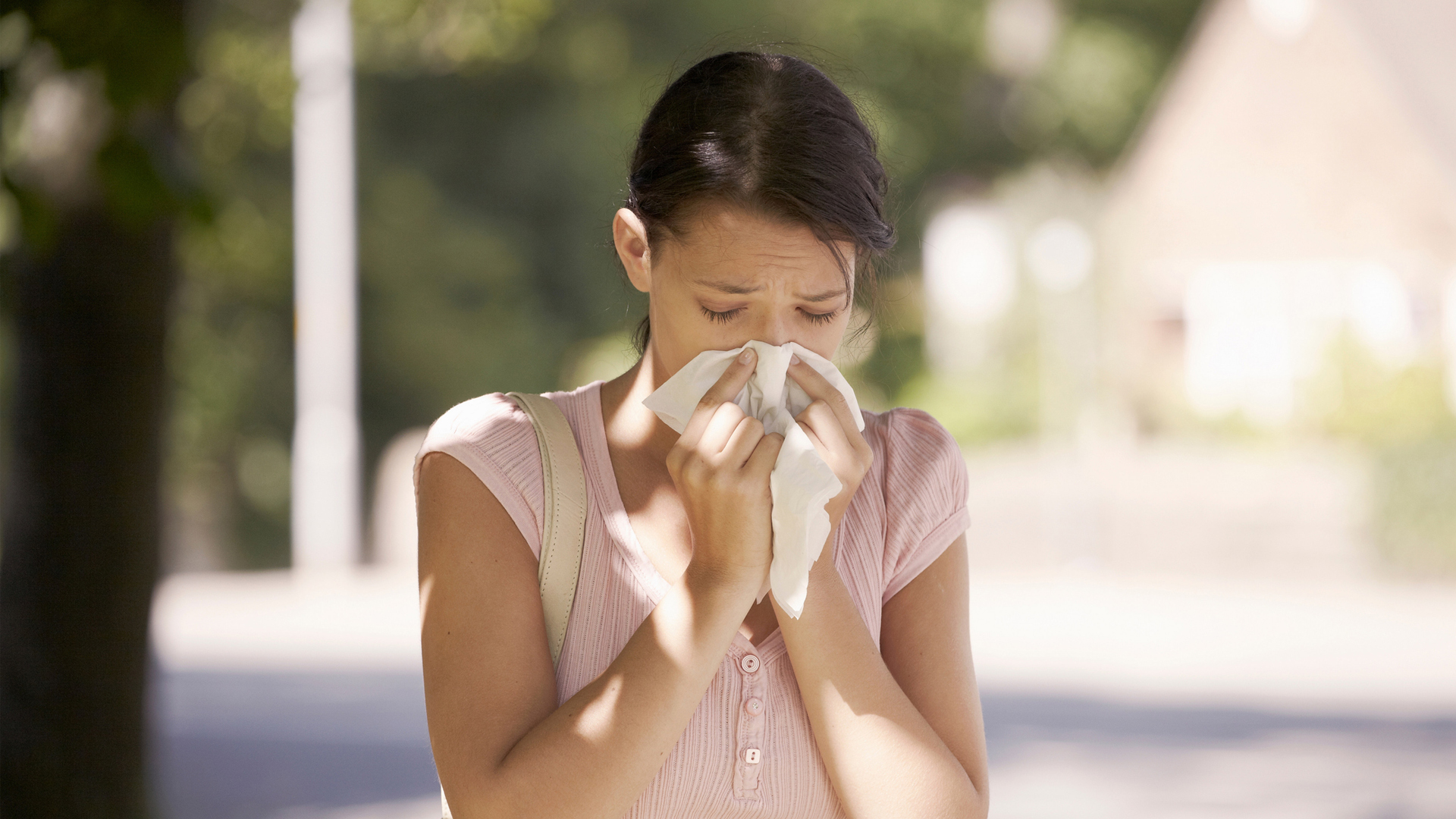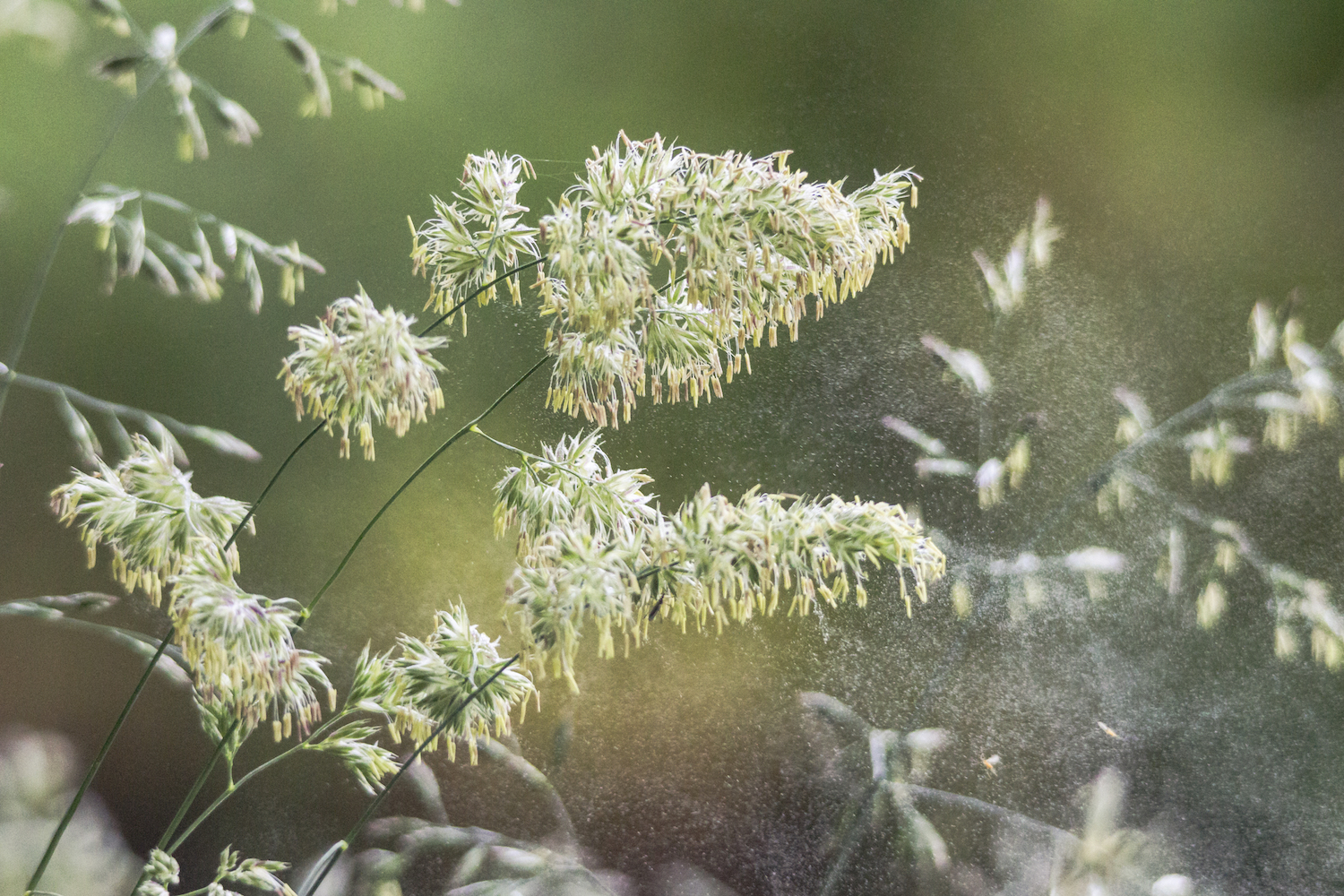Hay fever & seasonal allergies: symptoms, causes & treatment
We explore the causes of hay fever and why you might be feeling under the weather

Those who suffer with hay fever know that it can make the otherwise enjoyable transition from winter into spring a nightmare. Along with the warmer weather and sunshine can come symptoms such as a runny nose, sneezing and eye irritation.
Trees and grasses release their pollen from April to June, making this the peak time for those with hay fever to experience symptoms. Some trees, such as willow, start releasing pollen as early as February, and some weeds continue well into September. While you may not be sensitive to all types of pollen, on days with a high pollen count (a measure of the average number of pollen grains per cubic meter squared) you may find yourself experiencing unpleasant symptoms.
Some ways to reduce your hay fever symptoms include antihistamines or steroids, whether in pill, drop or spray form. You can also reduce the amount of pollen in your indoor environments with one of the best air purifiers, which help to trap the pollen before it can irritate your immune system.
What is hay fever?
Max Wiseberg, airborne allergens expert and creator of HayMax, explains that hay fever or seasonal allergic rhinitis is an allergic reaction to pollen. “Most people who suffer from hay fever are allergic to grass pollen and many are allergic to tree pollen,” he says. “Hay fever is a result of our immune system’s overreaction to innocuous antigens such as pollen. These antigens stimulate the bodies’ mast cells, which then break or degranulate, releasing mediators that include histamines. These mediators can cause the unpleasant itching, redness, inflammation and other hay fever symptoms.”
Hay fever symptoms may also include an overall achy feeling, or build-up of pressure in the entire face area. “The sinus area is often the most painful,” says Wiseberg. “Constant nose rubbing and blowing can leave sufferers with skin irritation and sensitivity. All of this can lead to tiredness, fatigue and exhaustion.”
Hay fever can also cause difficulty getting to sleep and other sleep disturbances. “These symptoms can in turn zap your energy levels, leaving you feeling low and sluggish,” adds Wiseberg. “Chronic hay fever sufferers may experience more severe or prolonged symptoms.”
Need a hand breathing easy during the warmer months? Check out our guide to the best air purifiers for allergies to trap unwanted allergens and pollutants.
Get the world’s most fascinating discoveries delivered straight to your inbox.
Hay fever symptoms
Hay fever symptoms are caused by our immune system’s response to the perceived threat of pollen in our system. Although most pollen isn’t harmful to us, our immune systems detect microscopic particles of pollen entering our respiratory system when we breathe and set off immune responses to try and clear it. That’s why your eyes and nose itch and run, and you might sneeze or cough as your body tries to get rid of the pollen.
Some common symptoms of hay fever are:
- Sore, swollen eyes
- Running or congested nose
- Sneezing and coughing
- Itchy nose, mouth, throat, ears and eyes
- Tiredness and fatigue
- Sinus pressure
- Headaches
If you suffer from asthma, you may find that pollen is a trigger for your asthma symptoms. A study in the Annals of Otology, Rhinology & Laryngology found that hay fever commonly occurs in those with asthma.
Hay fever: Tests and diagnosis
If you have one or a combination of the above symptoms at the same time each year, you can be fairly certain you have hay fever. Most treatments are over-the-counter, but it might be worth talking to a professional to ensure you’re choosing the right one for you.
Wiseberg advises. “There are many tests available but the best way to diagnose hay fever is to talk to your doctor or pharmacist, and then to ask them to test,” he says. “If your allergy is bad, you should ask for a referral to an allergy specialist.”
How can you treat hay fever?
Whilst there is no ‘cure’ for hay fever, there are several options for managing it. You may find some work for you better than others, so it’s all about finding the right treatment for you. #
“Several different groups of medicine have been developed for treating allergies,” says Wiseberg. The common ones are:
- Antihistamine tablets and capsules – these can relieve most hay fever symptoms, including sneezing, itchy, runny eyes, skin irritation, itchy nose and throat, but are less effective for nasal congestion.
- Antihistamine nasal sprays – these can quickly ease itching, sneezing and watering but generally only provide proof against mild symptoms.
- Steroid nasal sprays and drops – these reduce inflammation in the nose; they work best for clearing nasal symptoms such as itching, sneezing, watering and congestion. Sprays sometimes clear eye symptoms too.
- Eye drops – may reduce itchy, watering, swollen eyes.
- Other, slightly less common forms of conventional medicine for hay fever include nasal washes.
Most tablets, sprays and drops can be taken individually or in combination to help combat the symptoms of hay fever.
“And, just as with other drugs, there are many different brands of each type of hay fever medicine, so don’t give up if the first one you try doesn’t work for you; you may well find another version that works better,” adds Wiseberg.
Can you grow out of hay fever?
Hay fever is unusual in that sometimes symptoms can improve with age. This may be due to low level exposure to allergens over time developing tolerance in our immune systems, so those who have hay fever as children may not suffer – or suffer as much – as adults. A study in Allergy and Asthma proceedings found that when checking in with participants twenty three years after the original study, the majority (84.8%) reported improvements in their hay fever symptoms.
References
Additional disease burden from hay fever and sinusitis accompanying asthma, Annals of Otology, Rhinology & Laryngology, 2009
Natural history of hay fever: a 23-year follow-up of college students, Allergy and Asthma proceedings, 1998

Lou Mudge is a health writer based in Bath, United Kingdom for Future PLC. She holds an undergraduate degree in creative writing from Bath Spa University, and her work has appeared in Live Science, Tom's Guide, Fit & Well, Coach, T3, and Tech Radar, among others. She regularly writes about health and fitness-related topics such as air quality, gut health, diet and nutrition and the impacts these things have on our lives.
She has worked for the University of Bath on a chemistry research project and produced a short book in collaboration with the department of education at Bath Spa University.
 Live Science Plus
Live Science Plus






